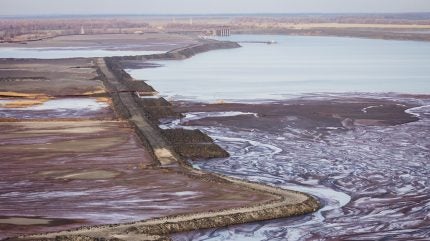
In the wake of a toxic spill at a Zambian mine, residents are demanding $420m (K9.98trn) in compensation from Chinese state-owned company Sino Metals Leach Zambia, according to a Bloomberg report.
The spill, which occurred in February, has been reported to contain highly acidic waste with toxic heavy metals, potentially ranking it among the most severe mining disasters globally.

Discover B2B Marketing That Performs
Combine business intelligence and editorial excellence to reach engaged professionals across 36 leading media platforms.
Two legal firms, Malisa & Partners Legal Practitioners and Malambo & Co., have issued letters of demand to Sino Metals on behalf of the affected communities.
The former is seeking $220m to enable the relocation of 47 households in the Kalusale community close to the contaminated area, along with costs for medical testing and treatment. The latter demands $200m to establish an emergency fund for clients.
The US and Chinese governments have both issued statements regarding the incident.
While the Chinese Foreign Ministry has acknowledged the company’s cooperation with the Zambian Government to address the situation, the Zambian authorities have initially downplayed the risks.

US Tariffs are shifting - will you react or anticipate?
Don’t let policy changes catch you off guard. Stay proactive with real-time data and expert analysis.
By GlobalDataDrizit Environmental, the company hired by Sino Metals for an environmental impact assessment, estimated that up to 1.5 million tonnes (mt) of waste were released.
However, Sino Metals terminated Drizit’s contract, citing a breach and questioning the assessment’s methodology.
Drizit maintains that around 900,000m³ of toxic tailings are still in the environment, containing hazardous substances that pose significant health risks.
“These materials were found to contain dangerous levels of cyanide, arsenic, copper, zinc, lead, chromium, cadmium and other pollutants posing significant long-term health risks, including organ damage, birth defects and cancer,” it said.
Embassies have warned their citizens to steer clear of the area due to these risks.
The Zambian Government, after initial reticence, has confirmed finding dangerous levels of heavy metals in water samples but has not yet responded to the latest compensation claims.





